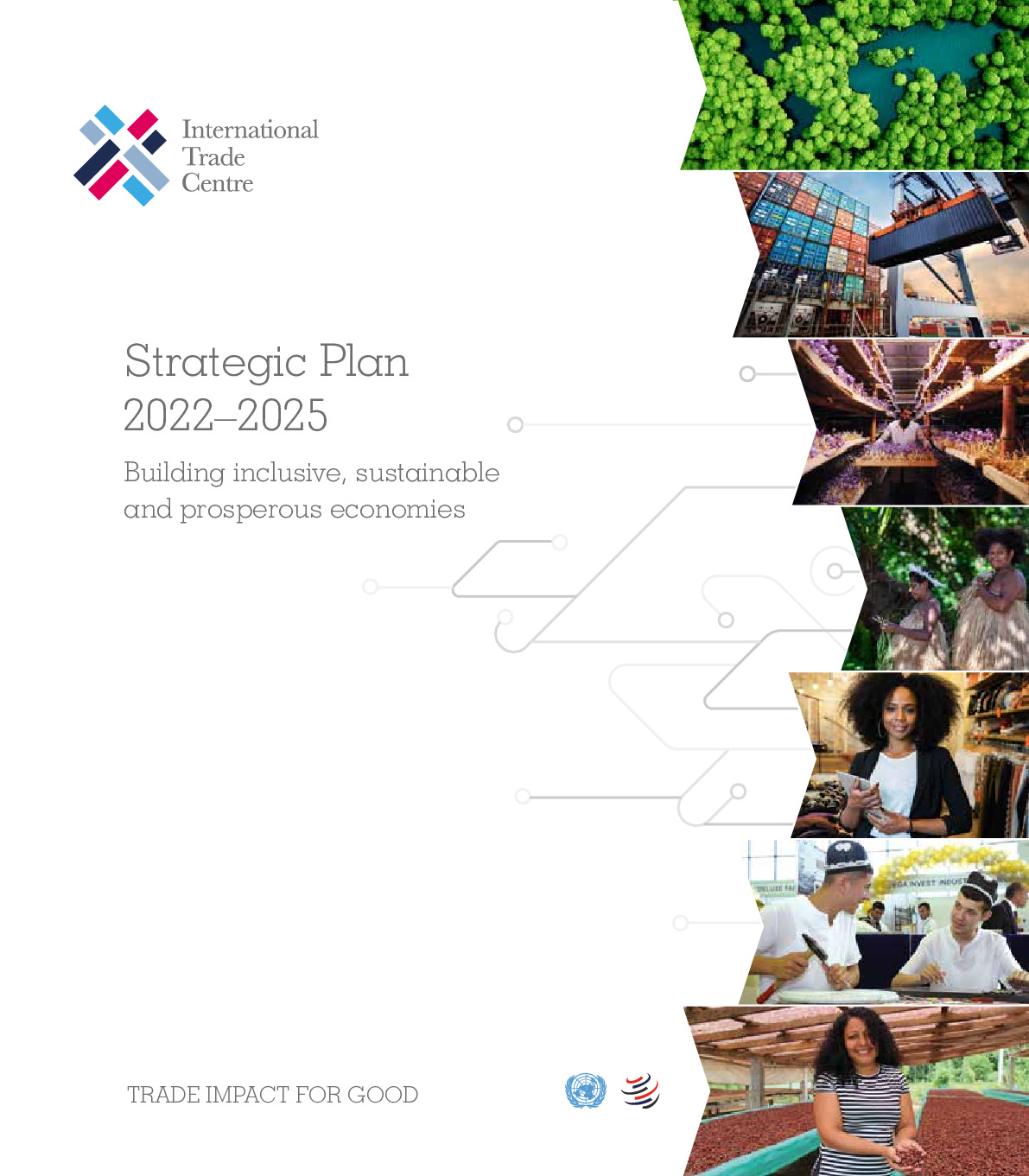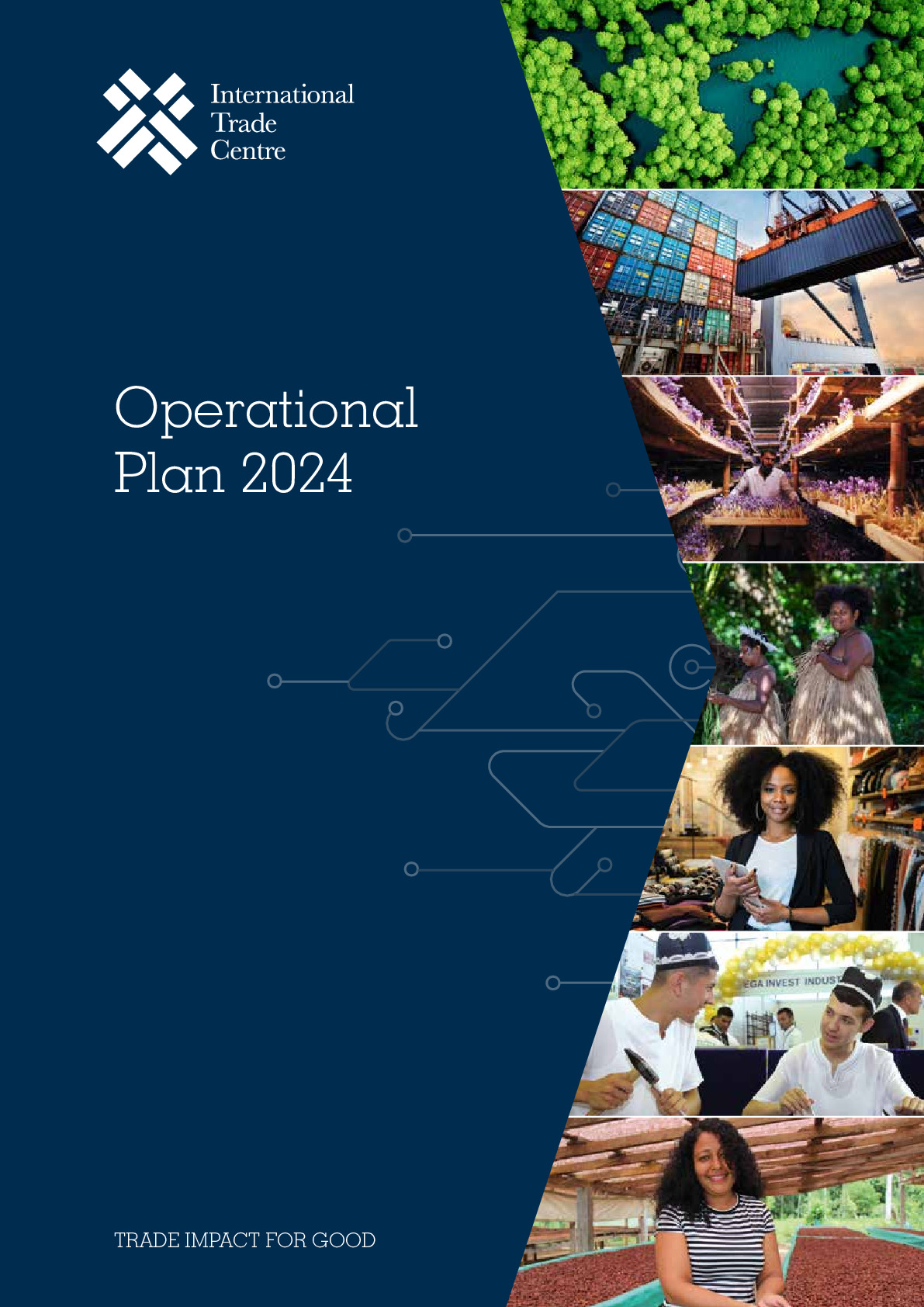
Governance
ITC is a joint subsidiary organ of the World Trade Organization (WTO) and the United Nations through the United Nations Conference on Trade and Development (UNCTAD).
We know credibility and trust are important elements of our work. We build up that trust through maintaining and strengthening the following tools for accountability and transparency.
Decisions on our project portfolio and resource allocation will be consistent with the priorities outlined in our Strategic Plan 2022-2025, although we will regularly review to validate those strategic plan objectives and implementation are necessary in a constantly changing operating environment. Our new results-based management tools - a new dashboard, and new data collection tools developed under the ongoing data management initiative - will provide more easily accessible, granular and timely information. Where poor performance is identified, it will be assessed and addressed.
During the 2022-2025 period, ITC’s Independent Evaluation Unit (IEU) will assess progress and demonstrate accountability of our contribution to achieving inclusion, sustainability and prosperity. ITC will integrate evaluative learning more systematically into programmatic and resource allocation decisions.
Taking risks, combined with good risk management, is essential for the credible stewardship of the resources entrusted to ITC. With the benchmarks of the UN Reference Maturity Model for Risk Management, ITC aims to move from the “established” to “advanced” level. This will imply further staff training, a strengthening of the corporate risk management function and an advanced enterprise risk management platform.
ITC will maintain its transparent reporting, with the annual report of the Executive Director as the main means for reporting on strategic plan progress to the Joint Advisory Group (JAG) and member states. The biannual reports to the Consultative Committee of ITC Trust Fund (CCITF) provide comprehensive information on implementation of the annual operational plans, and programme and budget reports will inform our parent organizations about ITC’s performance in relation to plans. ITC is readily available to outside scrutiny through its reporting to the International Aid Transparency Initiative and the new ITC Open Data Portal.
Our internal controls ensure that results are achieved in line with mandates, organizational policies, regulations and integrity standards. Oversight is provided on behalf of member states through such mechanisms as the Board of Auditors and Joint Inspection Unit (JIU) and the Office of Internal Oversight Services (OIOS) which conduct internal audits, investigations and organizational evaluations. Their reports and ITC’s management responses are publicly available.
ITC’s Regular Budget (RB) is funded in equal parts by the UN and the WTO, and is approved by the UN General Assembly and the WTO General Council. ITC fundraises for RB complementary resources to increase the envelope available for fulfilling ITC’s mandate. Our extra budgetary resources (XB) consist of pledges from donor governments, governmental organizations, other international organizations and civil society, including NGOs, the business sector and a variety of foundations. These commitments often extend over multiyear periods.
ITC is subject to the Financial Regulations and Rules and the Staff Regulations and Staff Rules of the United Nations, and to the oversight system of the UN. Our accounts are reviewed and audited by the United Nations Board of Auditors. ITC consistently receives an unqualified audit opinion on its financial statements, including in 2020, confirming sound financial management practices and full compliance with International Public Sector Accounting Standards (IPSAS).












